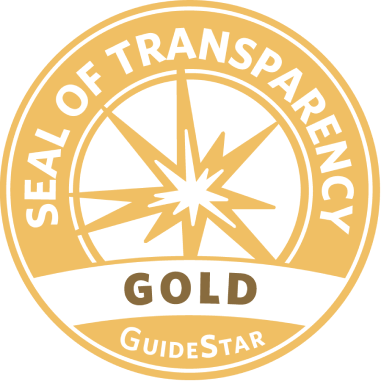Trauma leaves an indelible mark on those who experience it, often impacting emotional well-being, physical health, and the ability to lead fulfilling lives. At Omid Foundation, where our mission is to empower marginalized adolescent girls and young women, we have witnessed the transformative power of meditation in helping trauma survivors reclaim their lives. Meditation offers a path to healing by fostering mindfulness, reducing stress, and building resilience.
This article explores how meditation can serve as a powerful tool for trauma recovery, its benefits for the mind and body, and how we at Omid Foundation integrate this practice into our holistic approach to healing.
Understanding Trauma and Its Effects
Trauma can stem from a variety of experiences, including abuse, neglect, violence, or loss. For many of the young women we support, these experiences have created deep emotional wounds. Trauma often manifests as:
Emotional Dysregulation: Difficulty managing emotions like anger, sadness, or fear.
Physical Symptoms: Chronic pain, fatigue, or headaches caused by prolonged stress.
Mental Health Challenges: Anxiety, depression, or post-traumatic stress disorder (PTSD).
Traditional therapies play a crucial role in trauma recovery, but meditation provides a complementary approach that addresses the root causes of these symptoms by helping individuals reconnect with their inner selves.
The Science of Meditation for Trauma Recovery
Meditation, particularly mindfulness meditation, has gained widespread recognition as a powerful tool for healing trauma. Neuroscientific research shows that meditation can:
- Calm the Nervous System: Trauma often triggers a hyperactive fight-or-flight response. Meditation activates the parasympathetic nervous system, which helps the body relax and recover.
- Rewire the Brain: Meditation promotes neuroplasticity, the brain’s ability to form new connections. This is especially beneficial for trauma survivors, as it helps reduce the overactivity of the amygdala (the brain’s fear center) and strengthen the prefrontal cortex, which governs rational thinking and emotional regulation.
- Enhance Emotional Resilience: Regular meditation helps individuals process emotions more effectively, reducing the grip of traumatic memories over time.
Meditation at Omid Foundation: A Holistic Approach to Healing
At Omid Foundation, we recognize that trauma recovery requires a multifaceted approach. Meditation is a cornerstone of our emotional well-being programs, designed to empower young women by helping them cultivate mindfulness, self-awareness, and inner peace.
Here’s how we incorporate meditation into our work:
- Trauma-Informed Meditation Practices
Our meditation sessions are specifically tailored to the needs of trauma survivors. Facilitators are trained in trauma-sensitive approaches to ensure that the practice feels safe and accessible. For instance, we encourage participants to focus on their breath or engage in guided visualizations, avoiding techniques that may inadvertently trigger distress.
- Creating Safe Spaces
Safety is paramount for trauma survivors. Our meditation spaces are designed to foster a sense of security and calm. Soft lighting, comfortable seating, and soothing music help participants feel at ease, enabling them to engage fully in the practice.
- Gradual Integration
We understand that meditation can feel unfamiliar or overwhelming for some participants. That’s why we introduce it gradually, starting with short, guided sessions and progressively increasing the duration as participants become more comfortable.
- Incorporating Meditation into Daily Life
In addition to formal sessions, we teach participants how to integrate mindfulness practices into their daily routines. Techniques such as mindful breathing, body scans, or grounding exercises can be practiced anytime, offering ongoing support in managing stress and emotions.
The Transformative Benefits of Meditation
The impact of meditation on our participants is profound. Here are some of the ways it helps in trauma recovery:
- Reducing Anxiety and Stress
Meditation helps participants calm their minds and reduce the intensity of anxious thoughts. Breathing exercises and mindfulness techniques enable them to respond to stressors with greater composure.
- Rebuilding Self-Connection
Trauma often creates a sense of disconnection from the self. Meditation encourages participants to focus inward, fostering self-awareness and helping them reconnect with their emotions, thoughts, and bodies.
- Managing Flashbacks and Triggers
Through mindfulness, participants learn to observe their thoughts and emotions without becoming overwhelmed. This skill is particularly useful in managing flashbacks or triggers, as it allows them to ground themselves in the present moment.
- Enhancing Emotional Resilience
Meditation empowers participants to process difficult emotions and build resilience. Over time, they develop a greater sense of control over their emotional responses, enabling them to navigate challenges with confidence.
Real-Life Stories: How Meditation Changes Lives
Lila’s Path to Peace
Lila came to Omid Foundation struggling with severe anxiety and feelings of hopelessness after years of emotional abuse. Initially skeptical about meditation, she agreed to try a few sessions. Over time, Lila began to notice subtle changes—a sense of calm during moments of distress and the ability to sleep more peacefully. Today, she practices mindfulness daily and credits meditation with giving her the strength to envision a brighter future.
A Community of Healing
For many participants, meditation sessions are not just a personal practice but a communal experience. Sharing this journey with others who have faced similar struggles creates a sense of belonging and mutual support. Participants often describe these sessions as a sanctuary where they can heal together.
Expanding the Reach of Meditation
The success of our meditation program highlights its potential to transform lives, but there is so much more we can do. With additional resources, we aim to:
Train More Facilitators: Increasing the number of trauma-sensitive meditation instructors will allow us to reach more participants.
Develop Online Resources: Guided meditation videos and virtual sessions can make the practice accessible to those unable to attend in person.
Expand Our Facilities: Creating additional meditation spaces will ensure that every participant has access to a safe and nurturing environment.
Your support can help us make these goals a reality.
Simple Meditation Practices You Can Try
Whether or not you’ve experienced trauma, meditation can benefit your overall well-being. Here are a few simple practices to get started:
- Mindful Breathing
Find a quiet place to sit or lie down.
Close your eyes and take slow, deep breaths.
Focus on the sensation of your breath as it enters and leaves your body.
- Body Scan Meditation
Sit or lie down in a comfortable position.
Bring your attention to each part of your body, starting from your toes and moving upward.
Notice any sensations without judgment, allowing your body to relax.
- Loving-Kindness Meditation
Sit comfortably and close your eyes.
Repeat phrases like, “May I be happy, may I be healthy, may I be at peace.”
Gradually extend these wishes to others, including loved ones and even those you find challenging.
Conclusion
Meditation offers a powerful, accessible tool for trauma recovery, helping individuals find peace, resilience, and a renewed sense of self. At Omid Foundation, we are honored to witness the transformative impact of this practice on the lives of the young women we serve.
We invite you to join us in our mission. Whether by donating, volunteering, or spreading awareness, your support can help bring the healing power of meditation to even more trauma survivors. Together, we can build a world where every individual has the opportunity to heal, grow, and thrive.
For more information about our meditation program and other initiatives, visit Omid Foundation’s website.

